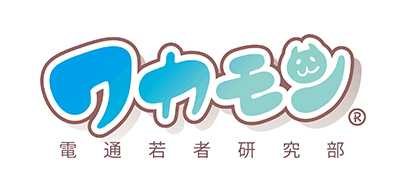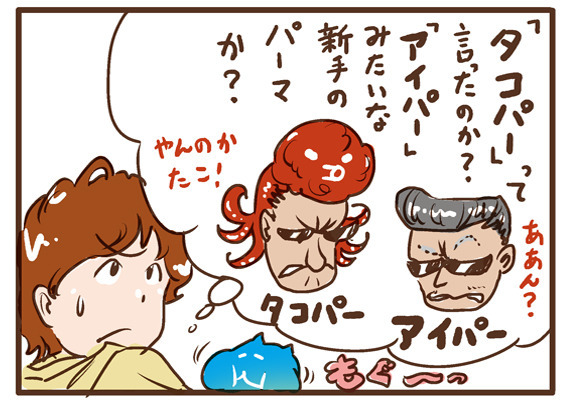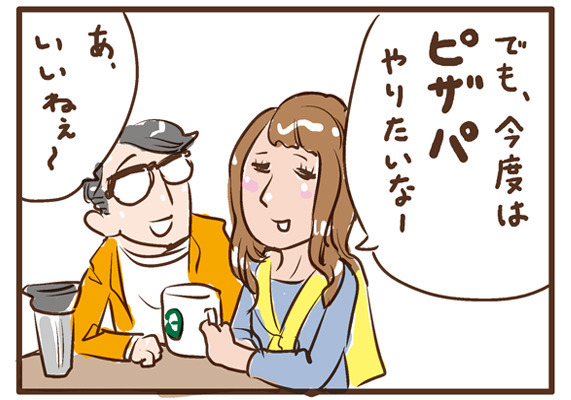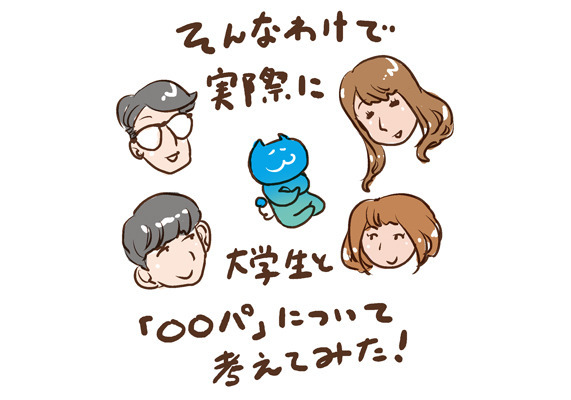The university students who answered our interview this time:
A-kun: Male, third-year university student. Recently gotten busy with an internship.
B-san: Female , third-year university student. Loves events.
C-kun: Male, second-year university student. About to study abroad.
D-san: Female, third-year university student. More the type to join when invited.
──So what kinds of "○○ parties" do people actually have around you?
B: Pizza parties, hot pot parties, and octopus parties are pretty standard, right?
Ms. D: I've heard of somen noodle parties, though we don't shorten the name!
C: Girls do pajama parties, right? Like bringing pajamas and having a drinking party at home. And limo parties!
──There are so many! Why does everyone add "party" to them?
B: I guess just tacking "party" on makes it sound fun (laugh). I think it definitely makes it easier to get people to come.
A: Just a drinking party can happen anytime, anywhere, so it's easy to decline. But if it's called a "party," it feels more like an event, so people might not turn it down.
C: The definition of a party is everyone gathering together, and it's mixed-gender. Also, there might be some preparation beforehand or someone organizing it.
──Adults often analyze things and say "young people these days are lazy," but isn't it a hassle to need preparation or have an organizer?
D: Preparing is fun! Going shopping together, making things together, and sharing the same food.
A-kun: Pizza parties are nice, but the best part of takoyaki parties is everyone digging in together. With pizza, you just order it and that's it.
C: Since we make it ourselves, we can do things like Russian-style takoyaki or use a hot plate to make dessert-style versions. That whole process of preparing and making it together is what makes it feel like a takoyaki party.
──I see. So the prep is a key part of "getting hyped up together," and that's what makes it feel like a real party event. What kind of people do you have takoyaki parties with?
B: For takoyaki parties, usually someone who lives alone lends their place, and we gather with people we're close enough to hang out at their place. It's a relaxed vibe.
D: The vibe is more laid-back. It's different from all-night karaoke or going out somewhere. It's relaxed, but we try to add a little event-like feeling (laughs).
C: But you definitely don't invite your girlfriend. You don't want that kind of interference.
──Unlike guys' nights or girls' nights, having both guys and girls is a key point, maybe?
A-kun: We do guys-only gatherings separately. Just the other day, four of us went to Kusatsu for the hot springs. Didn't post it on SNS though. Thought we might get laughed at if girls weren't there (laughs). Guys-only gatherings aren't planned out, and the vibe is pretty wild, so it's hard to invite girls.
C: It's mixed-gender, but not like a mixer where people are looking for romance—it's just chilling.
Ms. D: "Mixers" feels like a word that's gone out of style. If someone asks, "Wanna go to a mixer?", it kinda turns you off...
B: It's impossible to fall for someone in just a few hours, right? I think everyone's starting to realize that. Plus, when it's called a "mixer," it feels too serious and kinda off-putting. If it's just "I'll introduce you to a friend!", I'd totally go.
──Oh, I see... So it's a "Tako-pa" (octopus party), not a "Tako-kon" (octopus matchmaking party) (laughs). What's the biggest factor in whether everyone can enjoy an ○○-pa?
A: Ultimately, I think it depends on the person—whether they're the type who'd say, "I'd have fun doing anything with these folks." Adding the "-pa" suffix just makes it feel a bit more special.
B: When people gather and do the same thing together, it automatically feels special. Maybe it's about adding a little flair or ingenuity to the setup—figuring out how to boost the fun through the planning itself.
Wakamon: What did you think, Manager Hirai?
Hirai: Back in my day, "○○pa" meant either a "kompa" (drinking party) or "nampa" (picking up girls) (laughs). And they don't even say "gokon" (mixer) anymore... That's where I really feel the gap with the younger generation...
Wakamon: It's rational, right? "You can't fall in love in a few hours," they say (laughs). Plus, they really love things that feel planned. They don't think spending money alone magically creates special fun. It's about how much effort and ideas you put in to create your own unique experience and time together.
Hirai: So the fun starts with the preparation, huh~. Thinking about it, even the takoyaki maker itself feels special. You'd never use one if you were eating alone.
Wakamon: Maybe it's because experiences shared only by the people present at that exact moment, in that exact place, have become precious. In this era of ubiquitous and on-demand everything, everything's moving towards being "anytime, anywhere, anyone" – super convenient. Of course, we often share those moments with photos and on SNS too.
Hirai: Hmm. Convenience sure comes with its own challenges... But honestly, I really liked that part about "anything is fun with these guys"!
Wakamon: Yeah. Even in that context, creating that little bit of specialness—enough to call it an "○○ Party"—might be a reflection of wanting people around you to value their connection with you. If it's just a regular drinking party, people might turn you down because they can go anytime, but if it has that special "○○ Party" feel, they won't refuse.
Hirai: Ugh... That's a pretty harsh interpretation. But with so many connections on SNS and smartphones, it means you have to grab your friends' interest and attention more strongly than ever before...
Wakamon: It means there are more people out there who make you think, "I can have fun doing anything with these guys." Next time, we'll continue looking at the reality of events for young people!
(Column: Masahide Yoshida)

【WAKAMON Profile】
Dentsu Inc. Youth Research Department (nicknamed Wakamon) is a planning team that engages with the real lives and mindsets of young people, primarily high school and university students. We seek insights from their "now" to find hints for brightening and revitalizing the near future. By anticipating the future through their perspectives, we realize new businesses that foster better relationships between young people and society. Currently, 14 project members are based across our Tokyo headquarters, Kansai branch, and Chubu branch. We also share updates on the Wakamon Facebook page.













